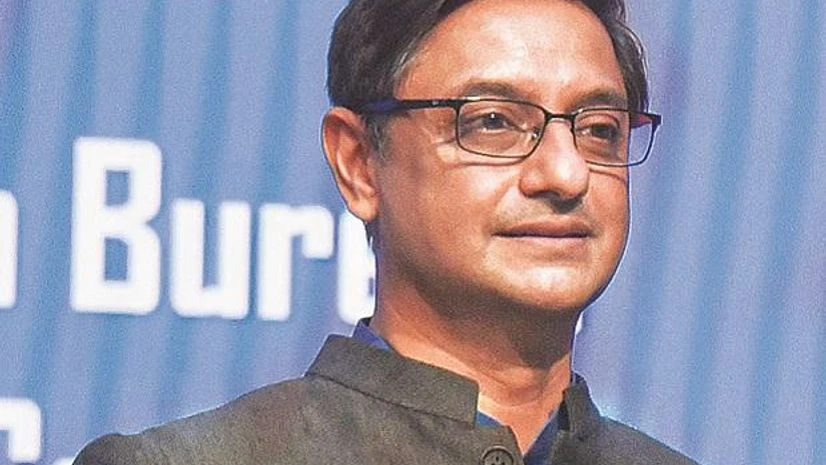Economic Advisory Council to the Prime Minister (EAC-PM) member Sanjeev Sanyal has said that 'open-ended' freebies should be 'discouraged' as the amount can be utilised for building infrastructure, or investing in the health sector.
Sanyal, however, added there is a need for targeted-subsidies, as it helps the poor in the time of need, as it happened during the COVID-19 pandemic period.
"We do need to target absolute poverty, but open-ended freebies are certainly something we should not encourage," he told PTI.
Sanyal said that there is a price to pay eventually for open-ended subsidies like free electricity or something that's not properly targeted.
"... The money that is spent on those particular open-ended freebies is something that can be spent on doing other things whether it's building infrastructure, or investing in the health sector," Sanyal opined.
Last week, the Election Commission wrote to political parties to provide authentic information to the voters to assess the financial viability of their election promises and also sought their views on the issue.
More From This Section
The EC has said it cannot overlook inadequate disclosures on election promises and consequential undesirable impact on financial sustainability as empty poll promises have far-reaching ramifications.
Prime Minister Narendra Modi in the recent past had hit out at the competitive populism of extending 'rewaris' (freebies) and said that these are not just wastage of taxpayers' money but also an economic disaster that could hamper India's drive to become atmanirbhar (self-reliant).
His comments were seen directed at parties like the Aam Aadmi Party (AAP) which have in the run-up to assembly elections in states like Punjab and more recently Gujarat promised free electricity and water, among others.
Replying to a question on unemployment, Sanyal asserted that unemployment rates are in fact coming down and job creation has been strong.
"Sustaining growth over long periods of time is critical to creating jobs," he said, adding that he is not one of those who believes that jobless growth is the real enemy.
While emphasising that there is a need to create incentives particularly to allow scaling up of sectors where job creation can happen, Sanyal said there is a case to push for production-linked incentive (PLI) scheme in the services sector where a lot of jobs can be created.
The government has announced PLI schemes for 14 sectors, including white goods, textiles and auto components to make domestic manufacturing globally competitive, create global champions in manufacturing, boost exports and create jobs.
Sanyal argued that India is in a good position to be able to deal with issues related to jobs for the next few years.
Earlier this month, RSS general secretary Dattatreya Hosabale expressed concern over alleged rising income inequality and unemployment in the country, asserting that poverty is posing as a "demon-like challenge in front of us."
However, Hosabale had said several steps have been taken in the last few years to address this challenge.
To a question on India's widening trade deficit, Sanyal said that it is due to external factors.
"The trade deficit, although it has gone up, has gone up for reasons I think that are manageable," he said, adding that India's current account will be smaller because its services exports are doing well.
India's trade deficit widened to USD 26.72 billion in September, while exports contracted by 3.52 per cent to US 32.62 billion.
According to Sanyal, after a short reversal, portfolio inflows are also happening and FDI has continued to be strong throughout the whole phase. "So I don't think we have an external financing problem of any matter," he asserted.
On Prime Minister Narendra Modi's ambitious target of making India a developed nation by 2047, Sayal said the target requires hard work but it is feasible.
"Well, one of the key things is compounding of growth. So the whole approach is related to how you can sustain and compound growth rates," he said.
(Only the headline and picture of this report may have been reworked by the Business Standard staff; the rest of the content is auto-generated from a syndicated feed.)

)
